Abstract
The antiviral activity of isoprinosine was tested in tissue cultures and mice. In tissue cultures, concentrations of 25 to 100 μg/ml inhibited the infectivity of influenza and herpes hominis viruses but not parainfluenza virus, rhinovirus, or adenovirus. Among different strains of influenza A, there was considerable variability in the inhibitory concentration of isoprinosine. For influenza B, a zone effect was observed in the inhibitory drug concentration. Oral prophylactic administration of isoprinosine beginning 24 hr before infection with an intermediate challenge dose of influenza A and continued as treatment for 5 days produced a significant reduction in mortality. No protection was provided against a high dose challenge. Oral or intraperitoneal treatment of mice beginning 24 hr after infection with influenza A or B viruses significantly delayed or prevented death when the drug was administered for 10 days, but not when treatment was limited to 4 days. An increased fatality rate which occurred in treated mice given a virus dose of low lethality could not be attributed to drug toxicity.
Full text
PDF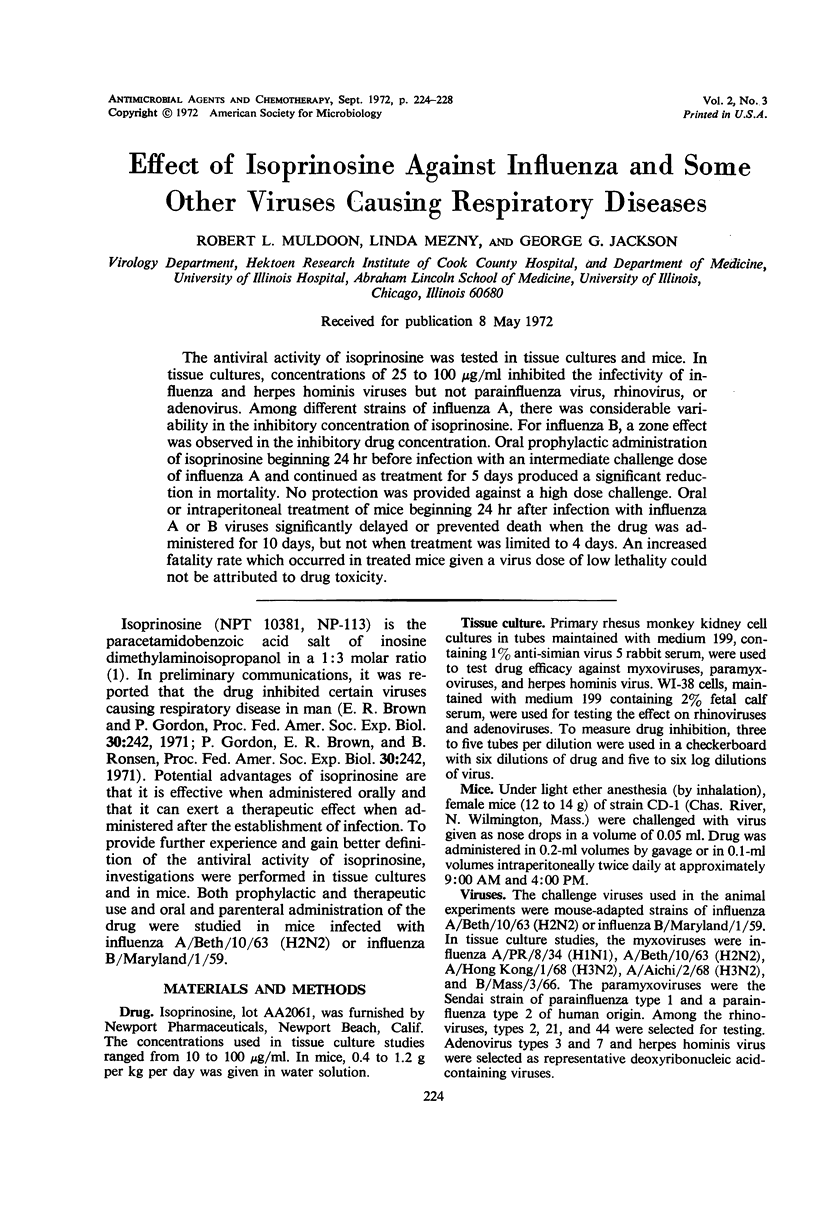
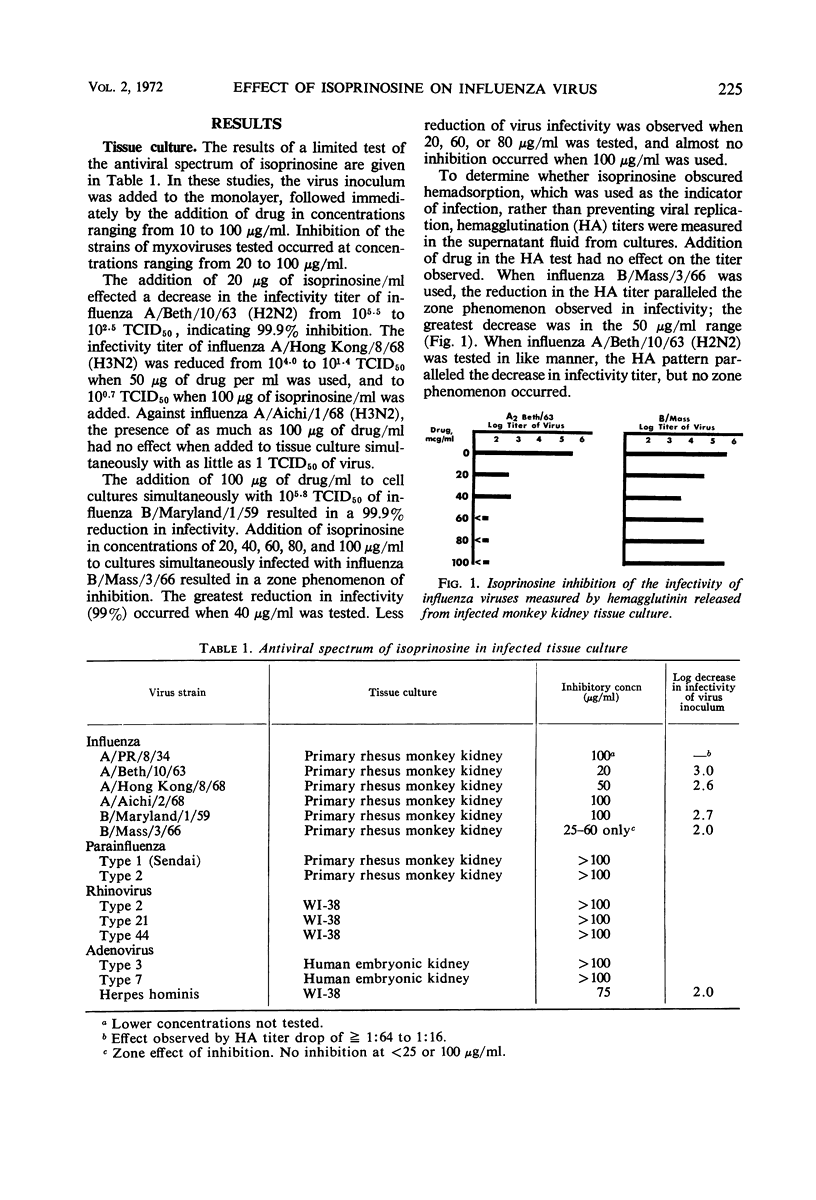
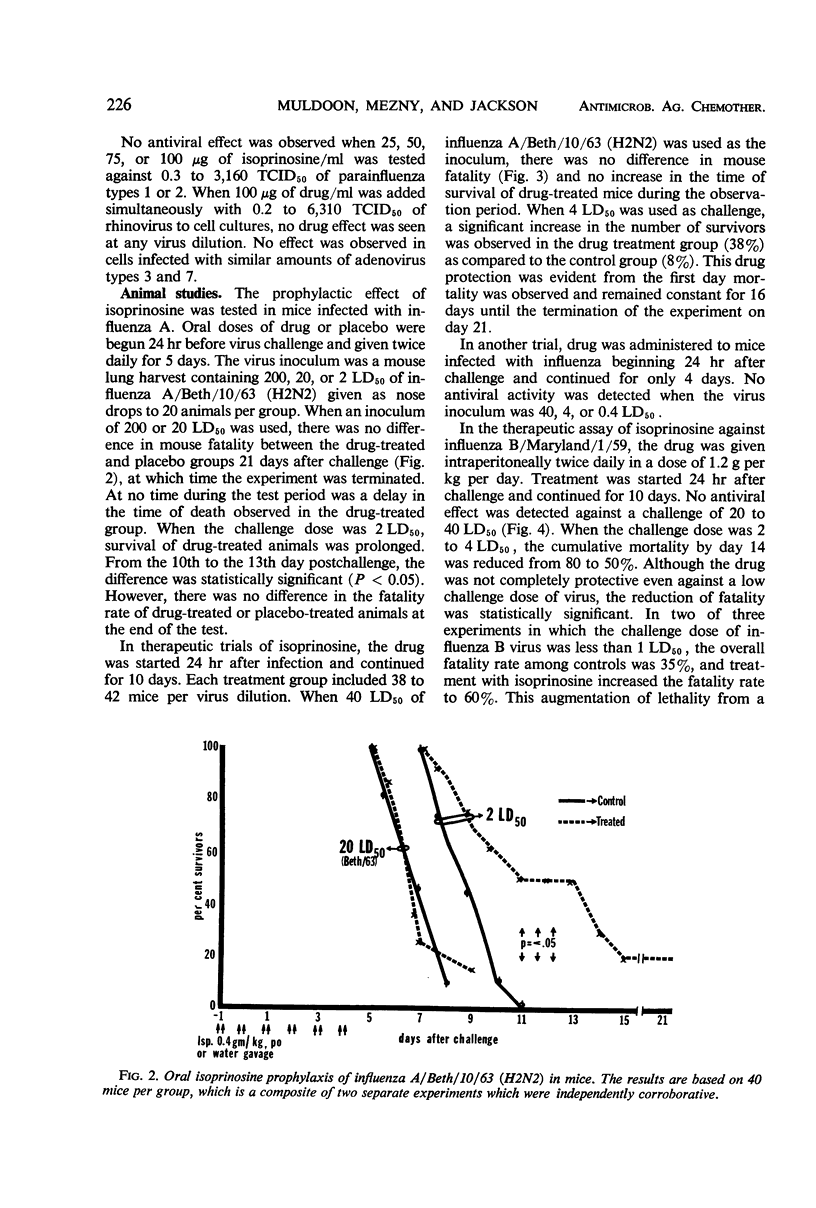
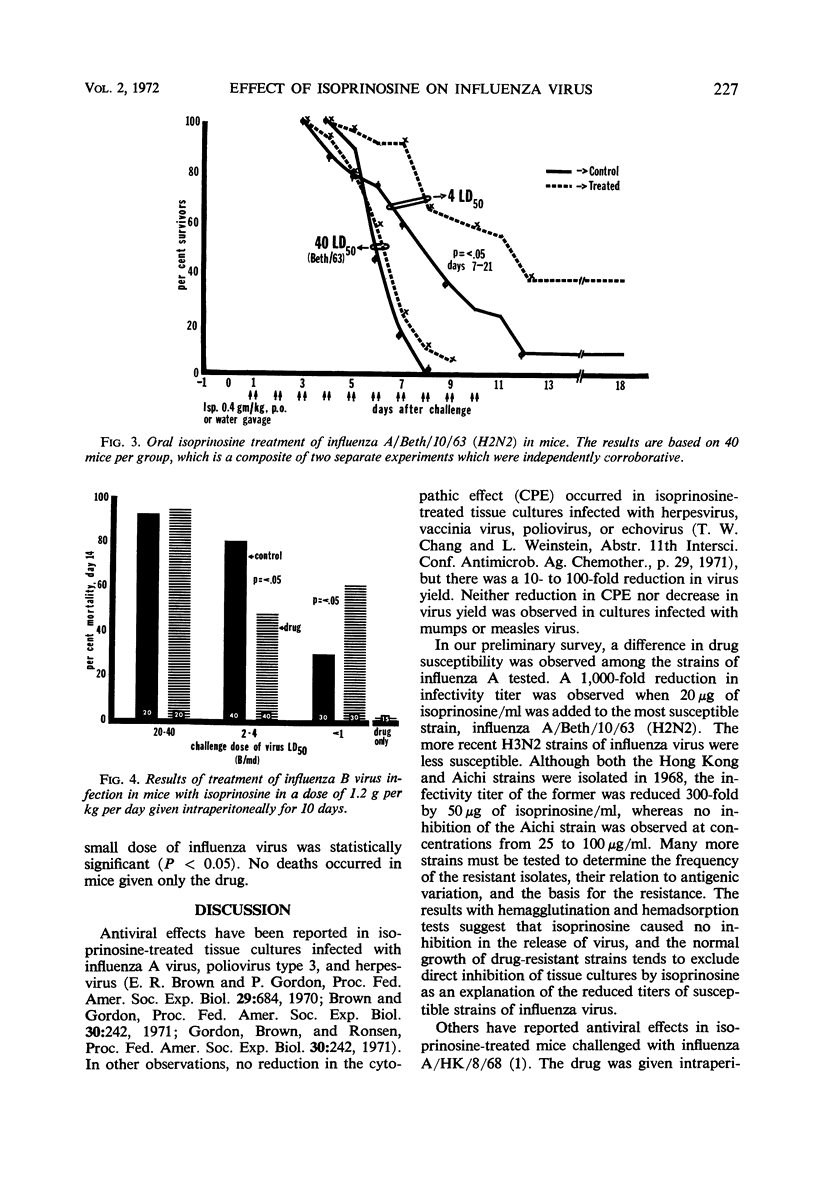
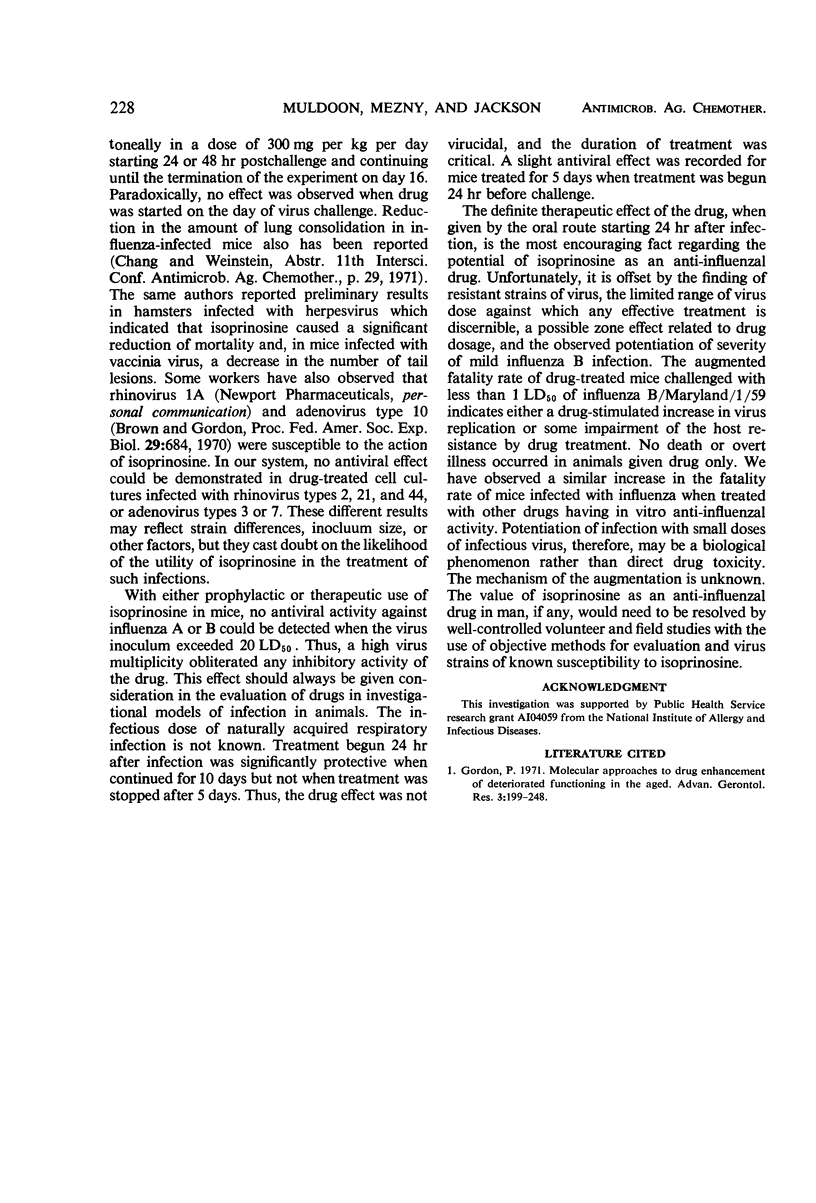
Selected References
These references are in PubMed. This may not be the complete list of references from this article.
- Gordon P. Molecular approaches to the drug enhancement of deteriorated functioning in the aged. Adv Gerontol Res. 1971;3:199–248. [PubMed] [Google Scholar]


